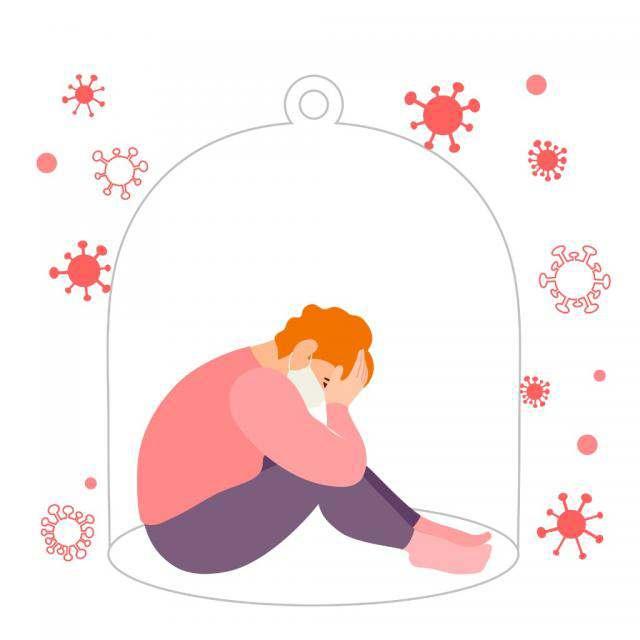
4 minute read
Supporting Students’ Mental Health during COVID-19: The Life After
from You-wA-H
by schoolindia
Webinar 11
Advertisement
SHARP NGO is celebrated World Mental Health Day 2020 by organising a webinar on “Supporting Students’ Mental Health during COVID-19: The Life After.” After battling with a tornado of emotions all these months, schools and teachers will have to come up with innovative ways to support Students’ Mental Health once offline classes resume. Building emotional resilience with access to the right tools for SBCC (social and behaviour change) will be monumental here.
With convergence between psychologists, principals and intervention agencies, this webinar focused on: • Identifying signs of anxiety and depression • Problems with sleep and dietary patterns • Convergence towards improving current practices of mental health in schools & colleges • Building right SBCC tools to support schools • Easing into the "Back to schools" transition for stakeholders
Our eminent panel which included:
MS. REKHA CHAUHAN Sr. Psychologist & Counselor, President AISUCAP, Working Group Committee Member - Manodarpan(MHRD)
DR. KANIKA K. AHUJA Associate Professor & H.O.D Psychology Dept. at MS. SUKANYA M. -
Lady Shri Ram College, Delhi Psychological Counselor & Principal at Maharishi Vidya Mandir, Chennai
MS. VRISHTI KAPOOR Founder - Decode Your Mind with Vristhti, Psychologist & Mental Health Advocate from Delhi
KEY TAKEAWAYS

IDENTIFYING MENTAL HEALTH CONDITIONS • We often confuse mental health and well-being with mental illness. Mental health includes our emotional psychological and social well-being; it affects how we think, feel or act and completely governs our perspectives about ourselves. • The lockdown has resulted in a drop in love and relationships. People would say that they are enjoying the family that they are spending together but anonymous surveys revealed they were facing family fatigue. It is advised that family share time with one another while also making sure that each and every one is getting time with themselves as well.

IMPACT OF COVID ON MENTAL HEALTH OF ADOLESCENTS • COVID has impacted the lives of students severely; schools have been closed down which has led to lack of social interactions and has confined them to their homes.
Further the developmental activities have also come to a halt; they have been unable to build a sense of identity and social skills. • Today, after six months of lock down and living in closed spaces we are all starting to get irritated with each other. Domestic violence, arguments among spouses and siblings have been on a rise. • “VIRUS Model” that is stressing everybody. 1. “V” stands for Vacation from others;. 2. “I” - Immediate Concerns eg: work life balance 3. “R” stands for Routine Destruction, 4. “U”, stands for Uncertainty about the future
KEY TAKEAWAYS
5. “S” – the Systemic stressor, this stands for something that is beyond us. All students constantly feel pressurized because of the pace of the syllabus. Online classes have caused a lot of digital fatigue. To express themselves freely children could use distinct art forms or online platforms for the same, this freedom of expression also opens the path of self discovery.
MENTAL HEALTH AND ROLES OF CARETAKERS • Good parenting and sharing responsibilities also plays a major role in making students independent and more developed. • Digital etiquette needs to be developed, use parental guidance and parental locks control the extent of exposure to information. • Charging a nominal fee to provide the facility of a school counselor to communicate stress will benefit the students. • The Ministry of Human Resource Development, GOI, has launched an initiative
Manodarpan, a free of cost psychosocial support for students, families and teachers.
The national helpline number is 8448440632. • Adults should also take care that they are not taking out their stress on their child since these violent acts have a long-lasting impact on a child’s development.

BEHAVIORAL CHANGES AND POSITIVE ATTITUDE • There are silver linings to this pandemic, we must appreciate them, and demonstrate our care for our family members, community and our planet. Practicing positive psychology would be very beneficial here. • We are living in a transitory period that has altered our lives significantly. These changes have made us habitual to the current phase of life. Every time we experience a transition we experience a “new normal”. • We must look at this pandemic as a period of evolution and not as a traumatic experience. • To enter the next stage of our life we must de-stigmatize the infection of the coronavirus, and be self-aware, we must prioritize ourselves and understand that we’re not super-humans. • The teaching process has turned into a partnership; where the teachers impart knowledge and the students help them technically. • This academic session has turned into one of learning and maintenance rather than assessment and performance.
SURVEY FINDINGS
Over 86.5% of the population feels that mental health problems have risen due to the COVID19 imposed lockdown. 34.5% believe that confinement to home is a major cause of stress and anxiety among college students. While another 17% believe the cause to be online classes. Approximately 62% of the population opines that there is more scope for convergence between schools and implementation agencies to promote positive health. Over 63% population feels that mental health did not receive enough attention prior to the lockdown. 63% individuals feel that Indian schools do not possess adequate tools and knowledge to impart mental health education. More than 45% of the participants feel that not enough attention has been given to the mental health conditions of students with special need.



